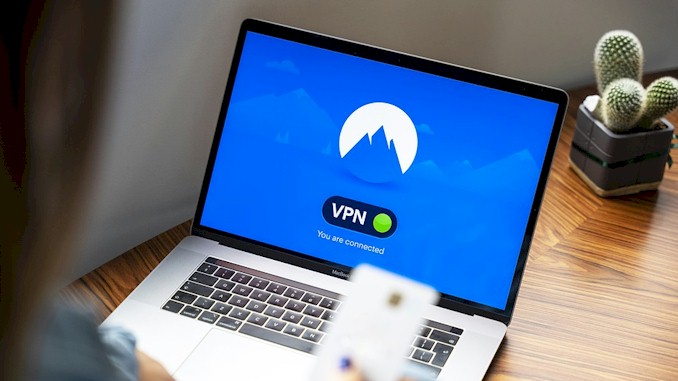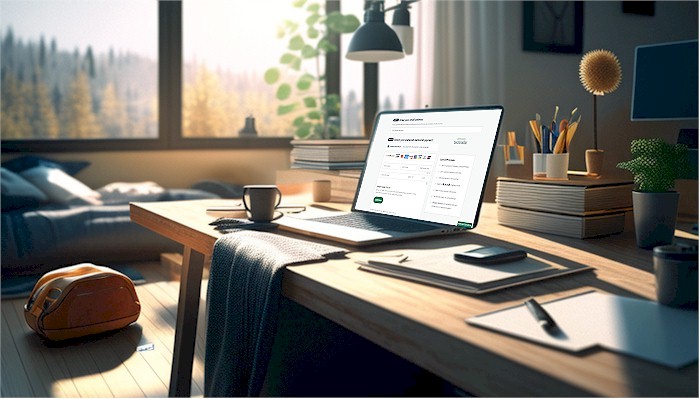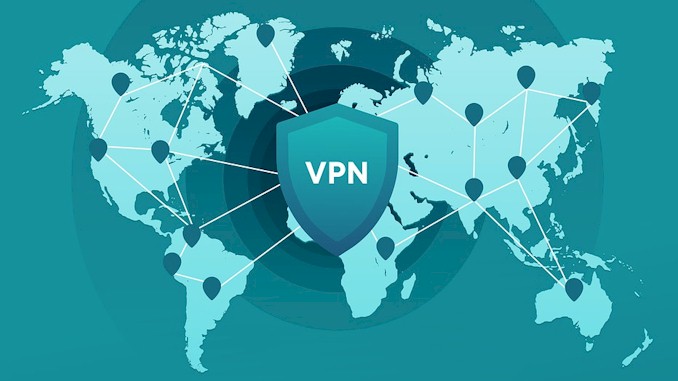What Does A VPN Not Protect You From
You may have heard of VPNs as a way to protect your online privacy and security. VPNs can encrypt your data, hide your IP address, and bypass geo-restrictions. But VPNs are not a magic bullet that can shield you from all online threats. In fact, there are some things that a VPN cannot protect you from, and you need to be aware of them. In this blog post, I will explain what a VPN does and does not do, and how you can stay safe online with or without a VPN. Whether you are a beginner or an expert in online security, this post will help you understand the limitations and benefits of using a VPN.
A VPN cannot protect your device from determined attackers using port scanning to gain access to your system, Malware and phishing attacks that can infect your device or steal your personal information, Websites and apps that track your online activity and collect your data for advertising or other purposes, Government surveillance and censorship that can monitor or block your online access, and Human error and negligence that can compromise your security or privacy settings.
Now that you know what a VPN cannot protect you from, you may be wondering how you can still enjoy the benefits of a VPN without exposing yourself to these risks. Don’t worry, I have some tips and tricks for you that will help you use a VPN safely and effectively. In the following sections, I will explain how you can avoid port scanning, malware and phishing attacks, how you can bypass government restrictions and access any content you want, and how you can avoid common mistakes that can ruin your online security and privacy. So stay tuned and keep reading to learn more about how to use a VPN like a pro.
What Can Hackers Do Even with a VPN?
A VPN cannot prevent a determined attacker from using port scanning to find out what services you are running on your device or network. Port scanning is a method of detecting vulnerable nodes in a network by accessing different ports on a host (a device connected to the network) or the same port on different hosts. A port is a logical endpoint for communication between two devices. For example, port 80 is commonly used for web servers, port 443 for secure web servers, and port 22 for secure shell (SSH) connections.
Port scanning can be used for legitimate purposes, such as network security testing or troubleshooting. However, it can also be used by malicious actors to discover organizations’ security levels, determine whether businesses have effective firewalls, and detect vulnerable networks or servers. Some common types of port scanning are:
- Ping scans: A ping scan is considered the simplest port scanning technique. They are also known as internet control message protocol (ICMP) scans. They send an ICMP echo request packet to each host on a network and wait for an ICMP echo reply packet. If a reply is received, it means that the host is alive and reachable.
- Vanilla scan: Another basic port scanning technique, a vanilla scan attempts to connect to all of the 65,536 ports at once using the transmission control protocol (TCP). It sends a TCP SYN packet (a request to initiate a connection) to each port and waits for a TCP SYN/ACK packet (an acknowledgment of the request) or a TCP RST packet (a rejection of the request). If a SYN/ACK packet is received, it means that the port is open and listening for connections. If a RST packet is received, it means that the port is closed and not accepting connections.
- SYN scan: Also called a half-open scan, a SYN scan is similar to a vanilla scan but does not complete the TCP three-way handshake. It sends a TCP SYN packet to each port and waits for a response. If a SYN/ACK packet is received, it means that the port is open and listening for connections. However, instead of sending back a TCP ACK packet (a confirmation of the connection), it sends back a TCP RST packet to terminate the connection. This way, it avoids logging the connection attempt on the target host and reduces the chances of being detected.
A VPN cannot stop an attacker from performing port scanning on your device or network. However, it can make it harder for them to identify your real IP address and location. A VPN can also encrypt your traffic so that even if an attacker manages to access your ports, they cannot read or modify your data without breaking the encryption.
There are some ways you can protect yourself from port scanning attacks when using a VPN:
- Use strong passwords and encryption keys for your services and devices.
- Use firewall to disable or block unnecessary ports and services that you are not using.
- Use firewalls and intrusion detection systems (IDS) to monitor and filter incoming and outgoing traffic.
- Update your software and firmware regularly to fix any security vulnerabilities.
- Use reputable VPN providers that have good security features and policies.
What Are the Risks of Using a VPN on Public Wi-Fi?
Public Wi-Fi networks, or hotspots, are convenient and widely available in coffee shops, malls, airports, hotels, and other places. However, they also pose significant security risks to your data and privacy. Here are some of the common threats you may encounter when using public Wi-Fi and how a VPN can help or not help you against them.
- Man-in-the-middle attacks: One of the most common threats on these networks is called a man-in-the-middle (MITM) attack. Essentially, a MITM attack is a form of eavesdropping. When you send data from your device to the Wi-Fi router, an attacker can intercept it and alter it or redirect it to a malicious site. For example, an attacker can steal your login credentials, personal information, or financial data.
- Unencrypted networks: When using an encrypted network, the information sent between your device and the Wi-Fi router is in a “secret code.” Only you and the router have the key to decode it. However, many public Wi-Fi networks are unencrypted or use weak encryption protocols. This means that anyone with the right tools can see your data in plain text.
- Malware distribution: Another threat on public Wi-Fi networks is malware distribution. Malware is malicious software that can harm your device or data. An attacker can use various methods to infect your device with malware when you connect to a public Wi-Fi network. For example, they can exploit security vulnerabilities in your software or firmware, trick you into downloading fake updates or apps, or inject malware into legitimate websites.
- Wi-Fi snooping and sniffing: Wi-Fi snooping and sniffing are techniques that allow attackers to monitor and capture your online activity when you use a public Wi-Fi network. They can use special software or hardware devices to capture packets of data that travel between your device and the router. They can then analyze these packets to extract sensitive information such as passwords, emails, browsing history, or cookies.
- Malicious hotspots: A malicious hotspot is a fake Wi-Fi network that mimics a legitimate one. For example, an attacker can set up a hotspot with a name similar to that of a coffee shop or hotel you are visiting. When you connect to this hotspot, you are actually connecting to the attacker’s device. The attacker can then access your data or redirect you to phishing sites that ask for your personal or financial information.
A VPN can protect you from some of these threats by encrypting your traffic and hiding your IP address. However, a VPN cannot protect you from all of them. For example:
- A VPN cannot prevent you from connecting to a malicious hotspot. You need to be careful and verify the name and security level of the Wi-Fi network before connecting to it.
- A VPN cannot protect you from malware that is already on your device or that you download from untrusted sources. You need to update your software and firmware regularly and use antivirus software to scan your device for malware.
- A VPN cannot protect you from phishing sites that try to trick you into giving up your personal or financial information. You need to be vigilant and check the URL and certificate of the website before entering any information.
Therefore, while using a VPN on public Wi-Fi is highly recommended, it is not enough by itself. You also need to follow some best practices such as:
- Use strong passwords and encryption keys for your services and devices.
- Avoid accessing sensitive sites or services such as banking or email on public Wi-Fi networks.
- Turn off file sharing and Bluetooth when using public Wi-Fi networks.
- Use HTTPS websites whenever possible.
- Use reputable VPN providers that have good security features and policies.
By following these tips, you can enjoy the convenience of public Wi-Fi without compromising your security and privacy.
Does a VPN Really Hide Your Search History?
A VPN can hide your IP address and location from your ISP and other parties that may be monitoring your online activity. However, a VPN cannot hide your search history from everyone. Here are some of the limitations of VPNs in hiding your search history:
- A VPN does not hide your search history from your browser. Your browser has its own internal settings that VPNs can’t affect. Your search history will still be logged even if you’re using a VPN IP address and have changed to a virtual location.
- A VPN does not hide your search history from Google or other search engines. Google and other search engines collect data from your previous searches and online activity using cookies, which are small files that get stored in your browser whenever you visit certain websites. VPNs do not deal with these cookies. Moreover, if you are signed in to a Google account or any other account that is linked to a search engine, your search history will be associated with your account regardless of whether you use a VPN or not.
- A VPN does not hide your search history from websites that you visit. Websites can track your online behavior using various methods such as cookies, web beacons, fingerprinting, or analytics tools. These methods can identify you based on your browser settings, device characteristics, IP address, or other factors. A VPN can only mask your IP address and location, but it cannot prevent websites from using other methods to track you.
- A VPN does not hide your search history from the VPN provider itself. When you use a VPN, all of your internet traffic goes through the VPN server before reaching its destination. This means that the VPN provider can see everything that you do online, including your search history. Some VPN providers may keep logs of your activity for various purposes such as troubleshooting, marketing, or complying with legal requests. Some may also sell or share your data with third parties without your consent.
Therefore, while using a VPN can help you protect some aspects of your privacy online, it is not a foolproof solution to hide your search history from everyone. You also need to take some additional steps such as:
- Use private browsing mode or incognito mode on your browser to prevent it from storing your search history locally.
- Clear your browser cache and cookies regularly to delete any traces of your online activity.
- Use a different browser or device for sensitive searches that you don’t want to be linked to you.
- Use a privacy-focused search engine such as DuckDuckGo or Qwant that does not track or store your searches.
- Use a trustworthy VPN provider that has a strict no-logs policy and strong encryption features.
By following these tips, you can enhance your online privacy and security and reduce the chances of exposing your search history to unwanted parties.
A VPN cannot protect you from government surveillance and censorship that can monitor or block your online access
A VPN can help you bypass some forms of government censorship by changing your IP address and location, allowing you to access websites and services that may be blocked or restricted in your country. A VPN can also help you protect your online privacy and security by preventing your ISP and other parties from monitoring your internet traffic.
However, a VPN cannot protect you from all types of government surveillance and censorship that can monitor or block your online access. Here are some of the reasons why:
- A VPN cannot hide your VPN usage from the government. Some governments have sophisticated methods to detect and block VPN traffic, such as deep packet inspection (DPI), which can analyze the data packets that travel through the network and identify their source, destination, and content. Some governments also have legal authority to compel VPN providers to hand over their user data or shut down their servers.
- A VPN cannot prevent the government from accessing your device or accounts. Even if you use a VPN, the government can still access your device or accounts if they have physical access to them, or if they have installed malware or spyware on them, or if they have obtained your passwords or credentials through phishing or other means. A VPN also cannot protect you from other forms of surveillance, such as cameras, microphones, GPS trackers, or biometric scanners.
- A VPN cannot guarantee that your data is safe on the server side. Even if you use a VPN, your data may still be vulnerable on the server side, depending on where the server is located and how it is operated. Some countries have laws that require VPN providers to keep logs of their user activity or to cooperate with law enforcement requests. Some VPN providers may also be dishonest or incompetent and may leak, sell, or share your data with third parties without your consent.
Therefore, while using a VPN can provide you with some benefits in terms of online freedom and privacy, it is not a bulletproof solution to avoid government surveillance and censorship. You also need to take some additional steps such as:
- Use a reputable VPN provider that has obfuscation technology to disguise your VPN traffic as regular HTTPS traffic. This can help you evade some forms of DPI and IP blocking that some governments use to detect and block VPNs.
- Use an antivirus software that can scan and remove malware or spyware from your device. This can help you prevent the government from accessing your device remotely or installing malicious software on it.
- Use strong passwords and two-factor authentication for your online accounts. This can help you prevent the government from accessing your accounts by guessing or stealing your passwords or credentials.
- Use encryption tools such as Signal or ProtonMail to communicate securely with others. This can help you prevent the government from intercepting or reading your messages or emails.
- Use Tor Browser or other anonymity tools to browse the web anonymously. This can help you prevent the government from tracking your online activity or identifying you based on your IP address.
By following these tips, you can enhance your online freedom and privacy and reduce the risks of exposing your online access to government surveillance and censorship.
How to avoid malware and phishing attacks when using a VPN
A VPN is a useful tool to protect your online privacy and security, but it is not enough to prevent malware and phishing attacks. Malware is any software that can harm your device or data, such as viruses, ransomware, spyware, or adware. Phishing is a type of cyberattack that tries to trick you into revealing your personal or financial information by sending you fake emails or directing you to fraudulent websites. Here are some tips on how to avoid malware and phishing attacks when using a VPN:
- Use a reputable VPN provider that has malware and ad blocking features. Some VPNs can block malicious websites and ads that may contain malware or phishing links. This can reduce the chances of you clicking on something harmful or falling for a scam. However, not all VPNs have this feature, so make sure you check before you choose one.
- Use an antivirus software that can scan and remove malware from your device. A VPN can encrypt your internet traffic, but it cannot detect or remove malware that may already be on your device or that may bypass the VPN connection. Therefore, you need an antivirus software that can scan your device regularly and remove any threats. Some antivirus software also have VPNs included, which can provide you with an extra layer of protection3.
- Use good cyber hygiene practices to avoid phishing attempts. A VPN can protect you from phishing attacks by hiding your IP address and location, but it cannot prevent you from receiving phishing emails or messages. Therefore, you need to be careful about what you open and click on online. Some of the best practices to avoid phishing are:
- Do not open attachments or click on links from unknown or suspicious senders.
- Do not enter your personal or financial information on unsecured websites or pop-ups.
- Do not use the same password for multiple accounts or websites.
- Do not share your VPN credentials with anyone else.
- Do use two-factor authentication whenever possible.
By following these tips, you can avoid malware and phishing attacks when using a VPN and enjoy a safer and more secure online experience.
How to avoid common mistakes that can ruin your online security and privacy when using a VPN
A VPN is a valuable tool to enhance your online security and privacy, but it is not a magic solution that can solve all your problems. If you use a VPN incorrectly or carelessly, you may end up compromising your online security and privacy instead of protecting them. Here are some of the common mistakes that can ruin your online security and privacy when using a VPN and how to avoid them:
- Using a free or unreliable VPN provider. Free VPNs may seem tempting, but they often come with hidden costs. Some free VPNs may inject ads, malware, or trackers into your browser, sell or share your data with third parties, keep logs of your activity, or provide poor performance and security. Some unreliable VPNs may also have weak encryption, leaky protocols, or shady practices that can expose your data to hackers or authorities. To avoid this mistake, you should use a reputable and trustworthy VPN provider that has a clear and transparent privacy policy, strong encryption and security features, no-logs policy, and good customer reviews.
- Forgetting to turn on your VPN or leaving it on all the time. If you forget to turn on your VPN before accessing the internet, you may expose your IP address and location, as well as your internet traffic, to your ISP and other parties. This can compromise your online security and privacy, as well as prevent you from accessing geo-restricted content or services. On the other hand, if you leave your VPN on all the time, you may experience slower speeds, higher battery consumption, or compatibility issues with some websites or apps that may block VPN traffic. To avoid this mistake, you should turn on your VPN whenever you need it and turn it off when you don’t. You can also use features such as kill switch or split tunneling to ensure that your connection is secure and efficient.
- Connecting to an unsafe public Wi-Fi network without a VPN. Public Wi-Fi networks are convenient but risky. They are often unsecured and unencrypted, which means that anyone on the same network can see what you are doing online or intercept your data. This can expose you to identity theft, fraud, malware infection, or phishing attacks. To avoid this mistake, you should always use a VPN when connecting to a public Wi-Fi network. A VPN can encrypt your internet traffic and prevent anyone from snooping on your online activity or stealing your data.
- Using weak passwords or sharing your VPN credentials with others. Even if you use a VPN, you still need to protect your online accounts and devices with strong passwords. Weak passwords can be easily guessed or cracked by hackers or authorities who may try to access your accounts or devices without your permission. Similarly, sharing your VPN credentials with others can compromise your online security and privacy, as well as violate the terms of service of some VPN providers. To avoid this mistake, you should use unique and complex passwords for each of your online accounts and devices. You should also use two-factor authentication whenever possible to add an extra layer of security. You should also keep your VPN credentials private and secure and only share them with people you trust.
- Ignoring other aspects of online security and privacy besides using a VPN. A VPN is an important part of online security and privacy, but it is not the only one. There are other aspects that you need to consider and take care of besides using a VPN. For example:
- You need to update your device’s operating system and software regularly to fix any vulnerabilities or bugs that may expose you to cyberattacks.
- You need to use antivirus software that can scan and remove malware from your device that may harm your device or data.
- You need to use encryption tools such as Signal or ProtonMail to communicate securely with others without exposing your messages or emails to hackers or authorities.
- You need to use browser extensions such as HTTPS Everywhere or Privacy Badger to enhance your browser’s security and privacy by forcing websites to use secure connections or blocking trackers respectively.
- You need to use Tor Browser or other anonymity tools to browse the web anonymously without revealing your IP address or location.
By avoiding these common mistakes that can ruin your online security and privacy when using a VPN, you can make the most out of this valuable tool and enjoy a safer and more secure online experience.







